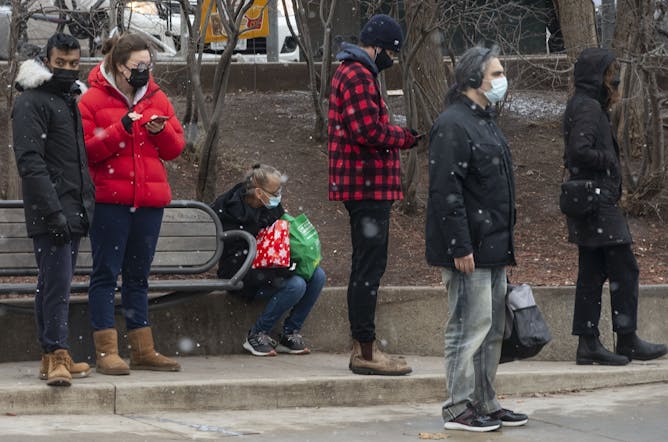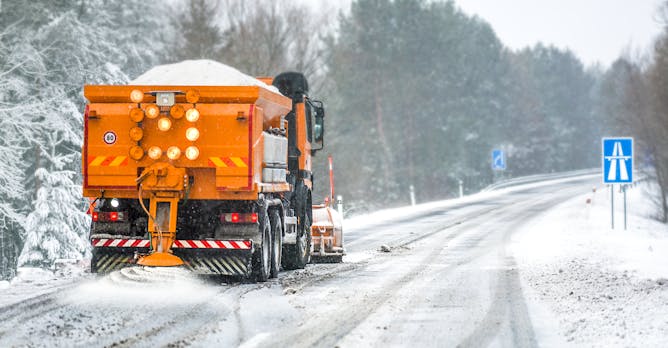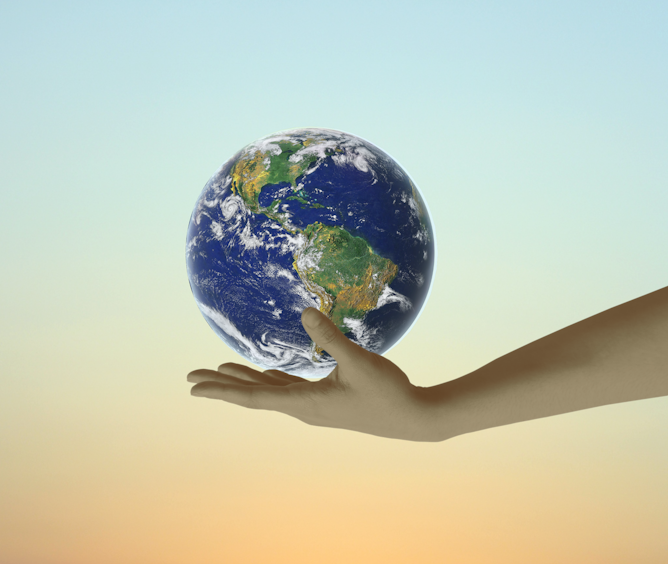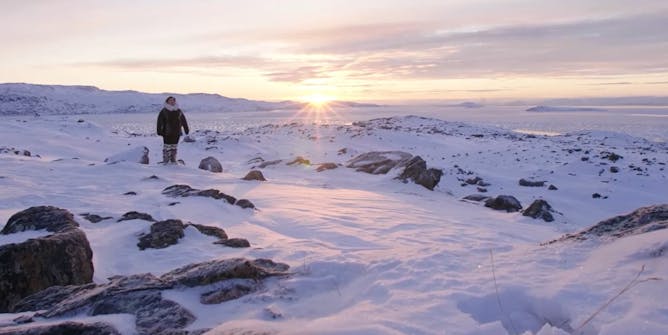|
Today is our last day for publishing in 2021. Our newsroom team is taking a much-needed break for the holidays – but you’ll still be hearing from us during the rest of year. Starting on Christmas Day, our editors will be presenting a review of their favourite stories from the last 12 months.
For our last day of the year, we offer a microcosm of everything I love about The Conversation Canada – a mix of serious news stories, new research, a perspective on the arts that you won’t find elsewhere and even a dose of cuteness to get us through these dark times.
Jack Rozdilsky, a York University professor of emergency management, writes about the need for Canadians to start learning to live with COVID-19 as an ongoing disaster. Lauren Lawson of the University of Toronto has new research on the year-round problem with road salt. Yushu Zhu of Simon Fraser University explains Canada’s housing inequity problem. Hélène Carabin of
Université de Montréal helps us understand the concept of One Health. Nina Penner of Brock University and Caryl Clark at the University of Toronto have a wonderful story about how two arts companies' creative choices in interpreting Handel's Messiah provide an opportunity to consider future directions for classical music.
And the cute stuff? Ghalia Shamayleh and Zeynep Arsel of Concordia University look at the “cute economy,” which you may be part of if you post pictures of your dog or cat on Instagram or Facebook.
We’ll be back with new stories on Jan. 3, but keep checking your Inbox for our Year in Review newsletters until then.
Regards,
|

|
Scott White
CEO | Editor-in-Chief
|
|
Today's Featured Articles
|

People wait in line — some for over two hours — at a PCR COVID-19 test site in Toronto.
(THE CANADIAN PRESS/Chris Young)
Jack L. Rozdilsky, York University, Canada
Canadians need to rethink their relationship to the pandemic by learning to live in a state of continual disaster for the foreseeable future.
|

Winter road salting is a common de-icing technique used to ensure public safety during icy winters. However, it is crucial to find sustainable and environment-friendly alternatives to road salt.
(Shutterstock)
Lauren Lawson, University of Toronto
Salty water seeps into our soils and groundwater through surface runoff and storm-water pipes. The long-term storage of salt in the environment impacts aquatic life, infrastructure and drinking water.
|

Neoliberal housing policies and financialization over the past four decades has helped transform housing in Canada from human necessity to an investment opportunity.
(THE CANADIAN PRESS/Sean Kilpatrick)
Yushu Zhu, Simon Fraser University
The conversation about housing policies needs to highlight the significant role the state plays in creating existing housing problems, and providing the resulting solutions.
|

There is only ‘one health’ — the health of all living organisms in a global ecosystem that, when rapidly altered and imbalanced, puts us all at risk for future pandemics.
(Canva)
Hélène Carabin, Université de Montréal
One Health recognizes the interrelations between the health of humans, other animals, and their shared environments. It should be integrated in the international treaty on pandemics.
|

Singer-songwriter Looee Arreak performed ‘He shall feed his flock’ in Inuktitut in Against the Grain’s production of ‘Messiah/Complex.’
(Messiah/Complex: Introducing Looee Arreak (NU)/YouTube)
Nina Penner, Brock University; Caryl Clark, University of Toronto
Two arts companies’ creative choices in interpreting Handel’s Messiah for our times provide an opportunity to consider future directions for classical music.
|

The cute economy is not only a network of cute content that people participate in making, sharing and circulating but also a multibillion-dollar business.
(Shutterstock)
Ghalia Shamayleh, Concordia University; Zeynep Arsel, Concordia University
If sharing cute animal content is your love language, you’re not alone — you are part of a bigger cultural phenomenon called the cute economy.
|
Culture + Society
|
-
Philip C. Almond, The University of Queensland
In the New Testament, there is nothing about Mary’s birth, death, appearance, or age. What we do know about the mother of Jesus is, in fact, quite surprising.
|
|
Health
|
-
Rosie Shrout, Purdue University
Hostile partners can experience jumps in stress and blood pressure after an argument. But there are ways to cool conflicts, even during a pandemic holiday season.
|
|
Science + Tech
|
-
Stephen Langston, University of the West of Scotland
An academic has developed a system to measure how much the golden ratio aligns with the plot elements of our all-time favourite Christmas films.
|
|
| |
| |
| |
| |
|
|